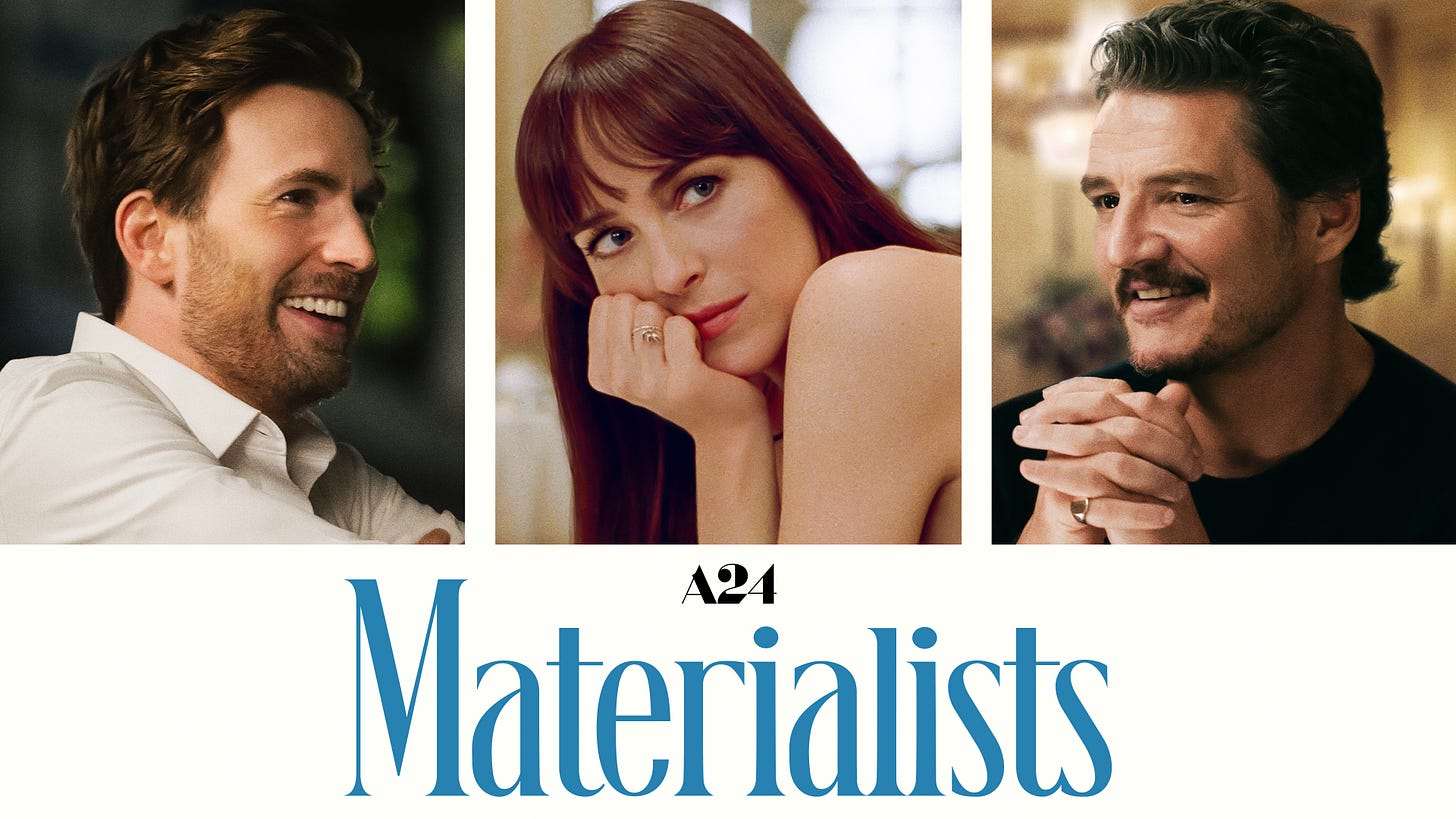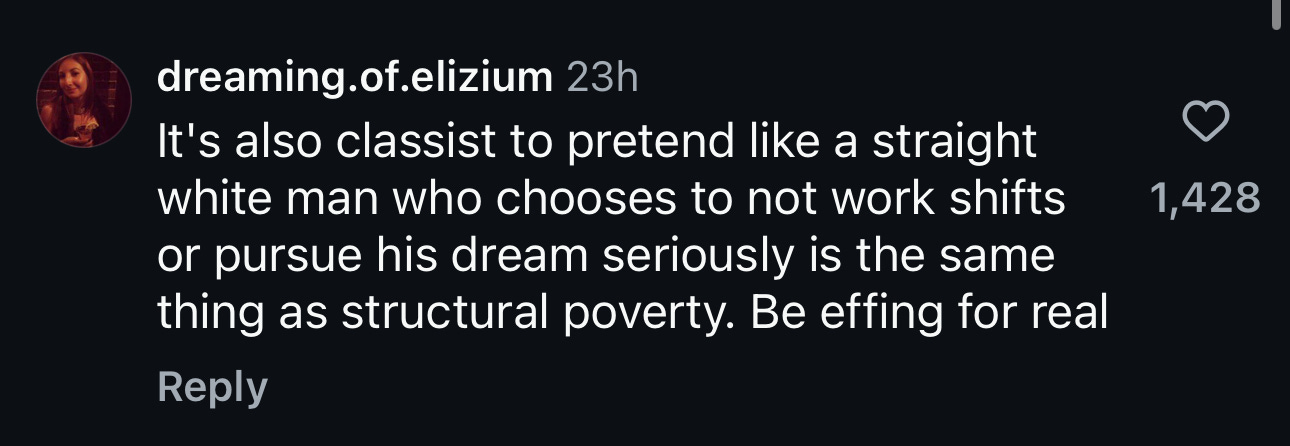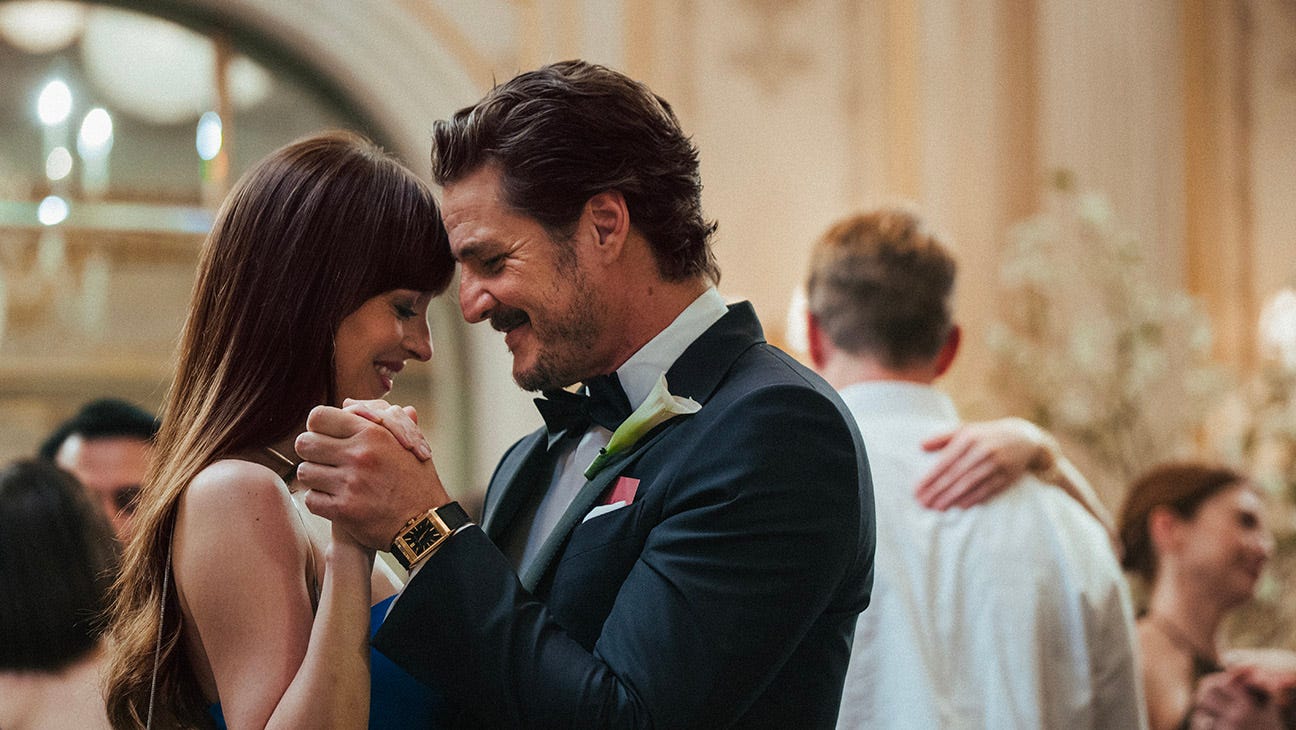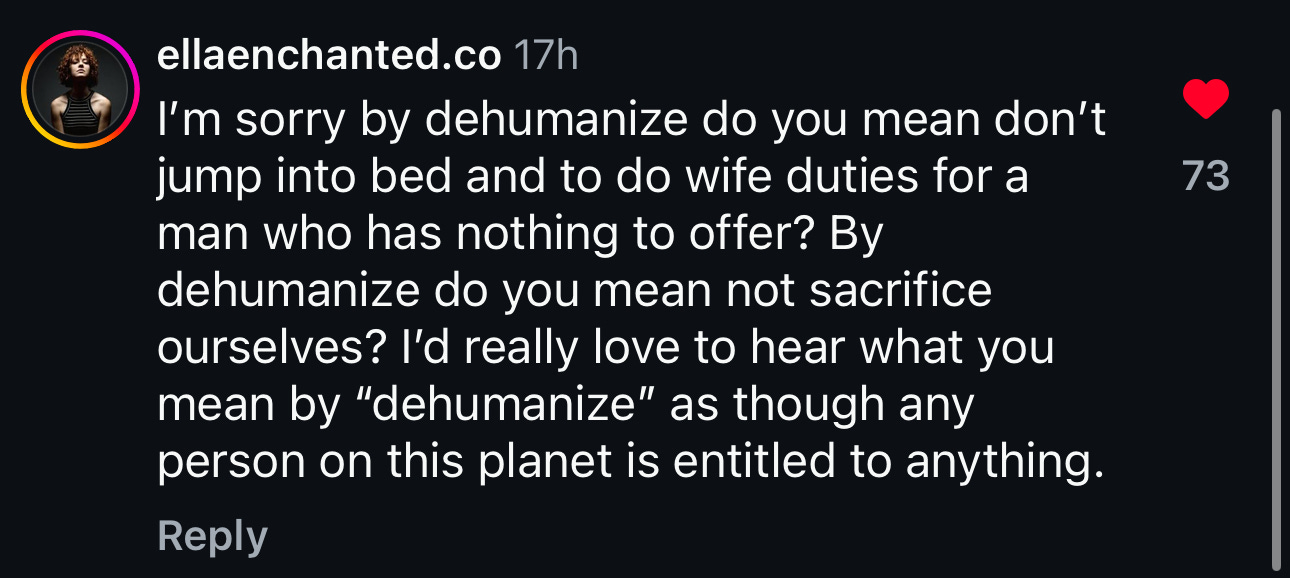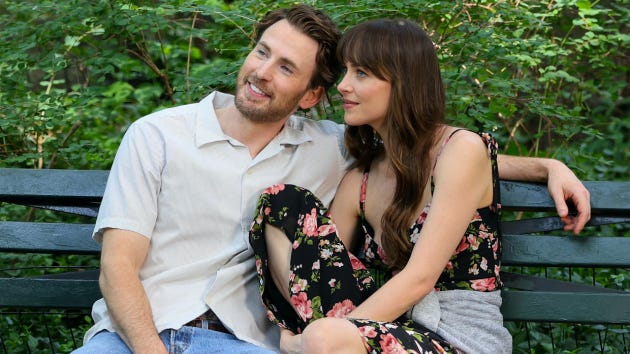The Materialists Frames It as Classism—Here’s Why It’s Really Entitlement
The Materialists mistakes women’s standards for bias. In reality, it’s survival.
Celine Song’s The Materialists sparked a wave of discourse about whether the film amounts to “broke man propaganda.” We’ve all been there: dating a guy who has every opportunity to build a solid foundation for himself but instead chases a passion project or shaky business venture, keeping himself in a perpetual state of instability. And when reality hits, instead of grappling with the very system built by his forefathers (read: other white men), he turns the blame on you—his girlfriend—because you dared to want to go to dinner to celebrate your anniversary. (Note: this is a real scene in the movie. I’m not making this scenario up.)
Despite what felt like a clear consensus among women from all walks of life, outlets like Dazed and The Hollywood Reporter keep reframing criticism of broke men in relationships as “classist” or even “dehumanizing.” But let’s be clear: rejecting entitled men who choose instability isn’t classist—it’s self-preservation. It’s women protecting themselves from disproportionate labor, financial strain, safety risks and emotional exhaustion.
Naturally, I’ve been in the comments. And the replies are astounding. Someone’s son referred to me as “subhuman” and I got quite a few "you’re worse than MAGAs.” Triggered!
What “Classism” Actually Means
Time for a vocab lesson: Classism is the systemic oppression of people with limited socioeconomic access. The keyword here is “access.” This does not apply to lifestyle choices like chasing an acting career while working part-time as a caterer in one of the most expensive cities in the world, like Chris Evans’ character in the film.
Of course, capitalism is an oppressive system that exploits everyone at some level. But it disproportionately benefits white men, because capitalism and white supremacy are historically intertwined. From apartheid South Africa to the U.S. wealth gap, the pattern is the same: capitalism protects and rewards white men while extracting endless labor from everyone else.
So when white, straight, able-bodied men in the U.S. cry “classism” because women don’t see them as eligible long-term partners, it’s not only a misuse of the word—it’s a fundamental misunderstanding of a system they themselves set up. They are its primary beneficiaries.
How Privilege Really Works
Not to make this about me, but let’s take my household as an example. To build my career in PR, I had to earn a college degree, complete four unpaid internships, and juggle multiple jobs in the early years just to gain experience and credibility. I’ve fought and clawed my way to the middle—too junior to receive bonuses, too senior to collect overtime.
Meanwhile, my husband, who is white, stepped into a career that required neither a degree nor experience. He’s worked at the same company for over a decade, for a man who once worked for his father. Today, he earns more than four times my salary.
My experience is just a microcosm of the broader reality: women grind through degrees, unpaid internships and underpaid jobs in feminized industries, while men can walk into higher-paying roles backed by networks built by other white men. My husband didn’t game the system, but he benefits from it — just as I’m penalized by it. And what makes it even more exhausting is that women are expected to climb that same ladder while also rearing children, managing households and absorbing the invisible labor men are rarely asked to shoulder.
This isn’t about who “works harder” or who “deserves more.” It’s about how systems privilege certain men while demanding endless unpaid labor from women. Which is exactly why it’s infuriating when able-bodied white men flood my comments insisting that not being “gifted” a wife is somehow classist.
Entitlement vs. Partnership
Here’s the hard truth: women are not obligated to subsidize someone else’s dreams. Relationships are partnerships, and they require mutual contribution—financially, emotionally, and domestically.
What absolutely drives me nuts most in this debate is the double standard around preferences. When have you ever seen men get shamed for their choices in partners? From hair color to body shape to race, men’s “standards” are normalized—even celebrated. Yet women saying “no” to instability is framed as cruel.
And let’s be honest: dating men already comes with higher risks—violence, emotional labor, unpaid domestic work. Women are dehumanized structurally and socially, forced to work harder to build careers while maintaining relationships and homes. Asking us to also accept instability is just another layer of harm.
Bigger Picture
The so-called “male loneliness epidemic” is not real—it’s a male entitlement epidemic. And the irony is thick: while women are being nudged back toward traditional gender roles (tradwife aesthetics, homesteading culture, government panic over birth rates) white men are no longer expected to provide.
Rejecting those dynamics isn’t cruelty. It’s women refusing to shoulder an already crushing imbalance.
White men can say whatever they want about me in my Instagram comments, but they need to stop weaponizing the language of oppression to shame women into settling. It’s misogynistic to assume women are just after men’s money, when what we’re asking for is something far more radical: a true partnership where stability, safety and effort are shared.


